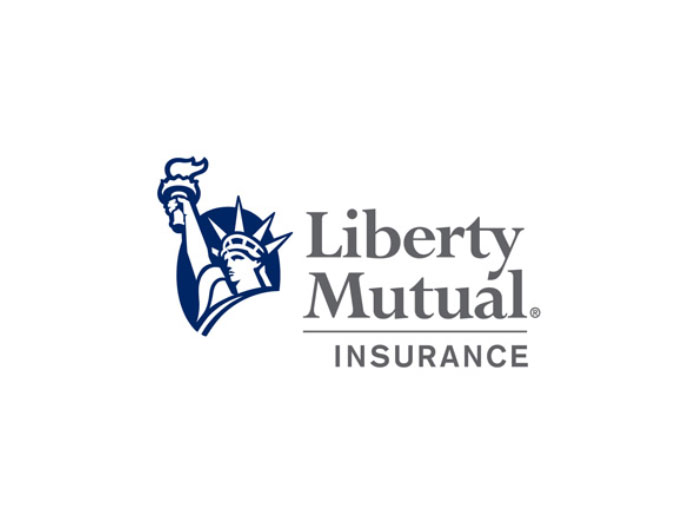Sponsored: Munich Re
3 Factors Driving a Boom in the Programs Insurance Market

The program insurance market is experiencing record growth.
According to the Target Markets Program Administrators Association’s 2019 “State of Program Business Study,” program revenues rose from $36.1 billion in 2016 to $40.5 billion in 2018 — a 12.8% increase. Since the study was first conducted in 2010, program revenues have jumped by 131%. Growth in the programs space also outpaced the rest of the P&C insurance market, expanding by 10.6% in 2018 versus 10.0% in the rest of the market.
“AM Best recently released a Performance Assessment for Delegated Underwriting Authority Enterprises. In our view, that signals the level of impact that program administrators are having on the industry. The program business has captured such a big share of the P&C market that it has AM Best’s attention,” said Kevin Johnson, president, insurance programs at Munich Re Specialty Insurance.
“And the size of the program business market hasn’t hit its peak. Our view is that the program business will continue to grow and outpace other sectors of the industry. It’s relevance and impact will only increase over time.”
According to Johnson, three key factors are helping to drive this continued growth.
1) Increased Demand for Specialized Expertise

Kevin Johnson, President, Insurance Programs at Munich Re Specialty Insurance
Insurance programs are both comprehensive and custom designed to meet the needs of business segments with unique risk profiles. Program administrators (PAs) need to understand their target market’s exposures inside and out, and more insurers, brokers and policyholders are recognizing the value in this level of niche expertise.
“Program administrators bring hyper-focused expertise to the market. Amid retail carrier consolidation, this specificity is becoming more valuable in the eyes of insureds. Insurance buyers want an agent and underwriter who understands their business, and that demand for specialization has driven more interest in the programs business,” Johnson said.
Program Administrators (PAs) and managing general agents (MGAs) have answered this demand with a growing level of sophistication. It’s not just about providing a suite of tailored insurance products; the best program providers come with a deep underwriting bench, in-house claims, actuarial, data and analytics, and risk control expertise, providing full end-to-end service.
“We’ve seen our program client base’s capabilities become more and more sophisticated over time. PAs come to the table with a view of risk and expect to drive outcomes through mutual conclusions with the carrier. We love that approach, as it builds alignment on the strategy from the beginning. That’s the biggest evolution I’ve seen in this space, and I expect it to continue,” Johnson said.
2) An Industry-Wide Talent Shift That Favors Entrepreneurialism
Growth in the programs business is also driven by shifting career desires and goals across the insurance industry. Industry talent is not necessarily content with working their way up the chain of command at a large national carrier. Rather, they want to build a business for themselves based on their years of experience and an underwriting proposition built with customers over a long term period. The programs sector offers more opportunities for creativity and entrepreneurialism.
“We see more and more teams leaving the large national operations for the more flexible environment of an MGA,” Johnson said. “MGA platforms are a logical home for entrepreneurs who have a solid foundation of experience and expertise in the market and who want to create something on their own.”
An emphasis on innovation also attracts new talent to the specialty programs business.
“Historically, MGAs have been incubators for new products. They were focused on innovation before innovation was a buzzword. Cyber is one great example; a lot of early cyber writers were MGAs. Many Insurtechs also started out as MGAs,” Johnson said.
Though insurance companies of every stripe are upping their investment in technology and digital platforms, Johnson expects to see a greater emphasis on digital distribution within the programs space. The impetus to be nimble and responsive is perhaps greater for program administrators than traditional carriers, given their narrower target markets. The demand for digital fluency and emphasis on technology buttresses the program market’s appeal to rising talent.
3) Flexibility to Meet Unique Needs in A Changing Economic Environment
With the ability to tap into both admitted and non-admitted products, specialty program administrators and MGAs have always had the advantage of coverage flexibility. Recently, that flexibility has become an even more valuable asset. The economic downturn caused by the COVID-19 pandemic exacerbated pre-existing struggles for retail carriers, driving losses in already challenged lines, forcing a rapid re-evaluation of risk portfolios, and causing some to become more conservative in how they deploy capital.
For insureds, this means shrinking capacity, rising rates and utilization of more markets to obtain the coverage they need.
E&S carriers have stepped in to fill holes left by retreating primary insurers, and PAs and MGAs have served as vital links to that capacity.
“Programs give retail agents access to quality insurance carriers that they otherwise might not have and provides flexibility,” Johnson said. “They also provide carriers with the flexibility to enter or exit markets without having to struggle with building and dismantling underwriting teams.”
“The E&S market, even with typical ebbs and flows, will continue to expand, filling gaps where admitted solutions don’t exist. Likewise, I think we’ll see opportunities arise as programs partner with E&S carriers to fill gaps and niches in the market. That’s where we’ve proven successful through the years and is a core part of the insurance industry’s role as the backbone of the economy.”
The Right Partner Matters for Programs Success
The success of program insurance hinges on selecting the right partners. Our various Munich Re companies are able to bring a wide range of products and capabilities to our partners across our North American and Global footprints. Both Munich Re Specialty Insurance and American Modern are actively looking for PAs and MGAs with track records of success in its target industries, encompassing everything from financial strength to breadth of services offered. In addition, Bell & Clements, through its binding operation, is a leading expert in understanding and connecting US coverholders and brokers, providing our partners with further access to high quality and flexible products for policyholders who qualify. With a presence across both commercial and personal lines programs, as well as cover holders, Munich Re stands tall as a leader in the delegated authority space.
“We select partners we can achieve profitable growth with – those who are prepared to join us on the journey of understanding evolving risks and providing sustainable solutions. That collaboration is the most critical part of our new programs process and the most important element of determining our future success,” Johnson said.
“We look at underwriting and operational capabilities, as well as the strength of their bench. Do they have internal analytics, actuarial expertise and claims staff? Perhaps most importantly, we look at the alignment of our long-term strategic goals. Are there processes in place that will allow us to come to joint conclusions? Because we see our partners as an extension of us.”
Risk control capabilities are an increasingly important factor in partner selection as well. Munch Re looks to complement the expertise and skill sets brought by PA partners by providing access to experts and resources that round out risk mitigation services.
Selecting high-quality partners also enables Munich Re to take an unbundled approach, meaning we have flexibility in the ultimate solution around claims and other value-add services whether it is handling in house or deploying third party administrators. This allows partners to ensure continuity, help build a bespoke solution and underscores confidence in the relationship.
In addition to a foundation of financial strength and rich resources, partners also gain access to decades’ worth of experience and expertise.
“We have been in the program business for 25 years. All of our programs are managed by underwriters that are 100% dedicated to this business and who understand its complexity and nuances,” Johnson said.
To learn more about our custom insurance program solutions that meet your specific needs, visit https://www.munichre.com/us-non-life/en/solutions/specialty-insurance/insurance-programs.html.
This article was produced by the R&I Brand Studio, a unit of the advertising department of Risk & Insurance, in collaboration with Munich Re. The editorial staff of Risk & Insurance had no role in its preparation.










